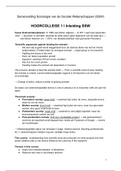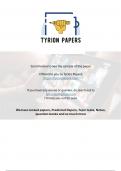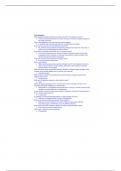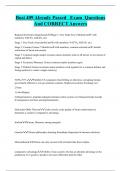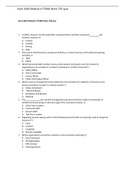Samenvatting
Samenvatting Geschiedenis van de Sociale Wetenschappen (GSW)
- Instelling
- Vrije Universiteit Amsterdam (VU)
Samenvatting van de hoorcolleges van het vak Geschiedenis van de Sociale Wetenschappen (voorheen Sociologie van de Sociale Wetenschappen) aan de Vrije Universiteit in Amsterdam. Dit vak wordt in periode 5 van het eerste collegejaar gegeven op de VU aan bachelorstudenten Sociologie, Politicologie, ...
[Meer zien]
